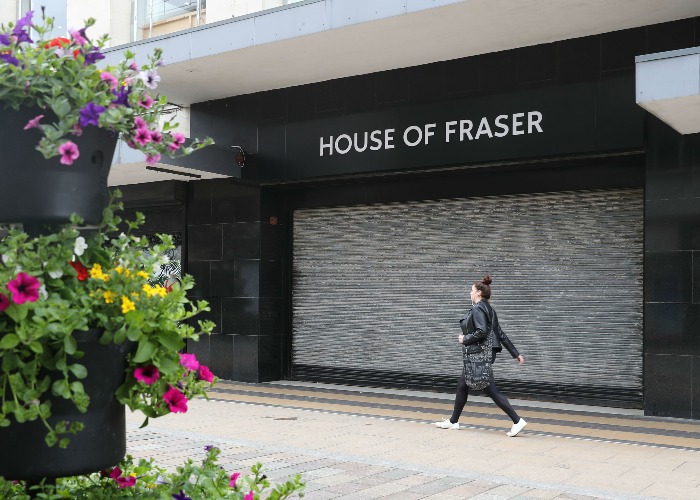Give us your view: what’s to blame for the decline of the high street?

House of Fraser has become the latest retailer to announce it's closing down stores. Is the cause online shopping, steep business rates... or are we to blame?
So far, 2018 has been a terrible year for the high street.
Yesterday it emerged that department store House of Fraser is planning to close half its outlets, including its Oxford Street flagship, by 2019.
M&S will close 100 stores by 2022, with chairman Archie Norman saying that the "tide is running more strongly against us now than at any previous time".
Mothercare is also culling 50 stores, Poundworld is in crisis and both Maplin and Toys R Us are closing permanently.
What or who is to blame for the high street’s troubles?
We’d like you to give us your view in the poll below and we’ve run through some potential culprits:
Online shopping
Everyones heard of Amazon – but what about clothing retailer Asos or online grocery delivery Ocado?
It’s not just electronics and books that can be cheaper and more convenient to buy online.
Asos’ profits increased 145% last year and it expects sales to grow by a quarter in 2018.
If you are going online, read our list of online shopping tips that could save you hundreds
Business rates
Tesco chief executive Dave Lewis has argued that these charges played a “large part” in the collapse of retailers.
These taxes were revamped last year but Lewis says business rates still give online retailers the upper hand, as they operate just a few large out-of-town warehouses.
According to Lewis, Tesco spends more than £700m a year on business rates.
People have less money to spend
Perhaps we’re simply to skint to spend?
The current freeze on real wages is the worst in 200 years according to the TUC, which argues that wages have lagged behind inflation since 2008. The fall in the value of the pound hasn’t helped.
Real wages did grow in the year to May…by a measly 0.4%.
If you find yourself with too much month at the end of your money, have a look at our guide to budgeting or even ask for a pay rise.
We’re spending money on other things
It’s possible that shoppers are simply ditching the high street for a holiday.
Three-quarters of adults are putting money aside to pay for memorable experiences rather than material products, a Charter Savings Bank suggests.
While the ‘experiences’ trend is associated millennials, half of the over-55s say they’ve got ‘enough material goods to last a lifetime’, claims Charter Bank.
It’s retailers' own fault
Let’s be honest: who enjoys going to the high street these days?
Once you’ve fought your way through the charity muggers, you’re presented with a row of chain retailers selling much of the same tat they did 20 years ago, in shops that look the same.
For many retailers the height of innovation these days seems to be the automated checkout machine – it’s no wonder they’re struggling.
Whether you're hitting the high street, or going online, get paid for shopping with a cashback credit card and cashback sites Quidco and TopCashback.
Comments
Be the first to comment
Do you want to comment on this article? You need to be signed in for this feature